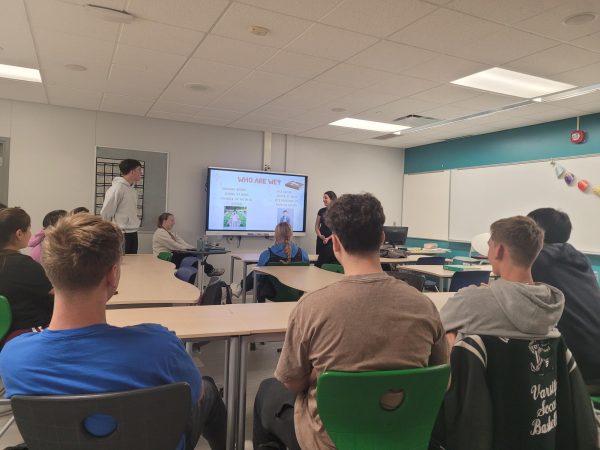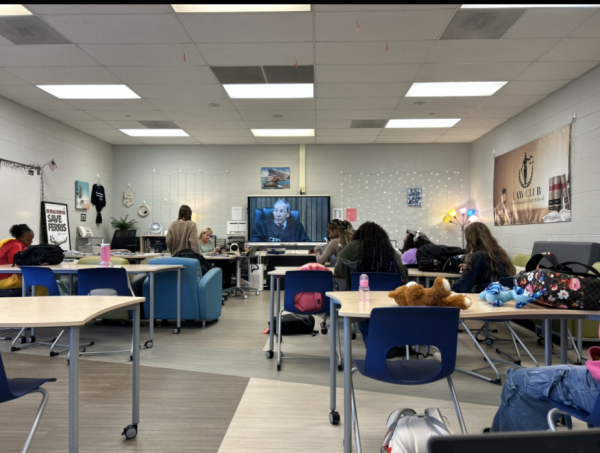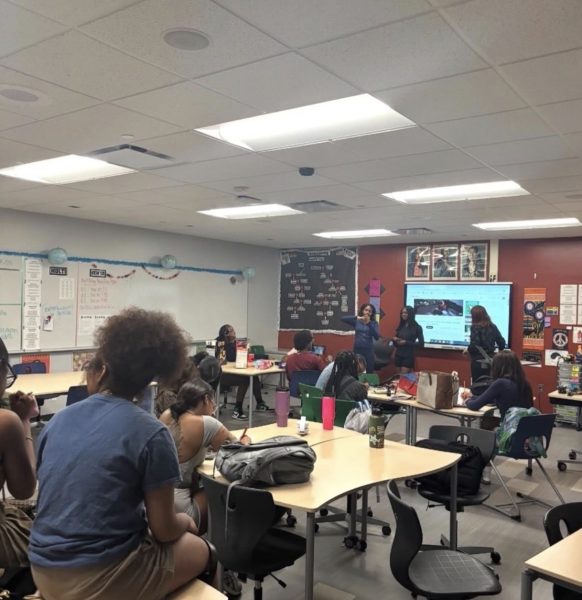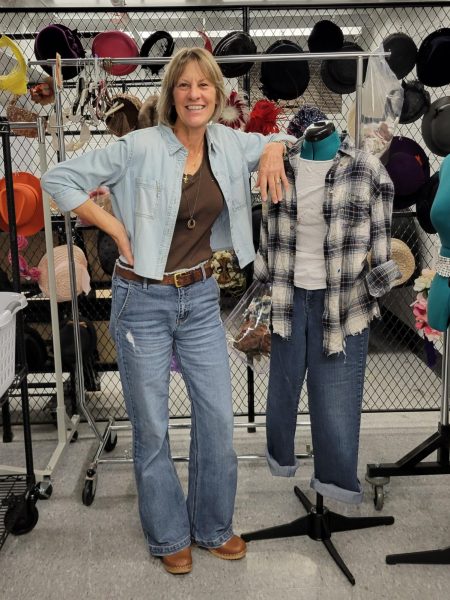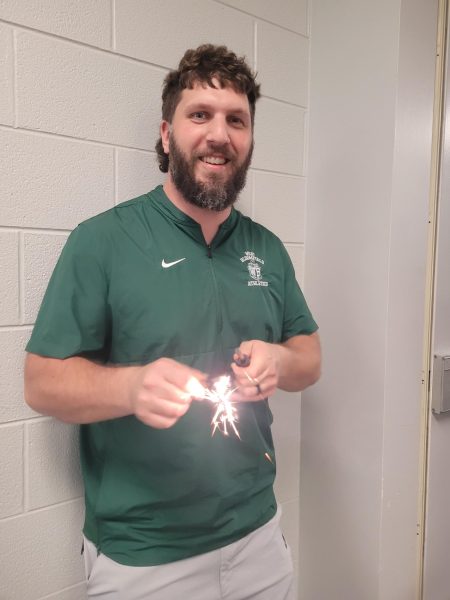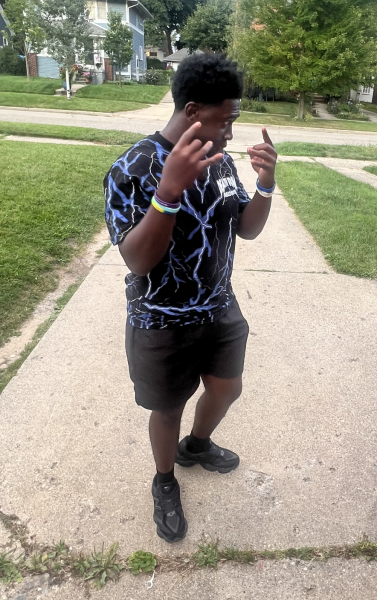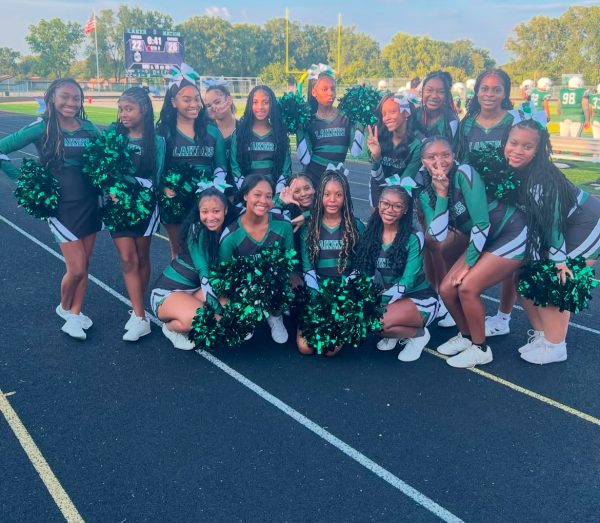Mental Health Interview Starring Noelle Sellars
It is one of the most common, yet most neglected issues our society has ever harbored. It is an epidemic that has not, and is still not being met with the proper attention it deserves. It is mental health. Now more than ever, teenagers are having mental health struggles as a result of social media and growing societal demands. Noelle Sellars, WBHS senior, speaks out on her personal mental health experience.
What would you like to share about having depression?
“Well, depression sucks. I have Major Depression, which is categorized as feeling depressed for nearly everyday for two or more weeks. It is definitely hard to live with. I’ve also suffered with depression for most my life, with it starting when I was 8. I’ve missed at least half a year of school in my collective school career because I could not, and sometimes still cannot, find the will to get up in the morning. I lost interest in everything I liked doing and even when I was in the mood to do things, interest would quickly fade. At school, I looked forward to going home and at home, I looked forward to going to school simply because I didn’t do anything at either place. Because I lost interest in school, and my future, my grades suffered and things are very stressful now that I’m a senior and at the end of the road. In truth, I didn’t really figure out anything was wrong until I started Marching Band. The exercise and support system improved my mood greatly. Then, once the season ended and I started spiraling down(very quickly actually. Like, within a week of the season ending), that was when I realized that something wasn’t exactly right. I’d like to say that I started seeking the help I needed, and I do feel like I am improving, but I also still feel like I have a ways to go.”
What is the hardest thing about what you are going through?
“There are a lot of hard parts about depression. I think the hardest part of depression for me would be realizing that you’ve hit rock bottom. For years, I lived without much a care of my life, and even thought about ending it for a good while there. The few things that stopped me were A) The fact I was and still am unsure of what lies beyond this life and that I didn’t want to find out if dying hurt, and B) Small things that made me feel better, and that showed that people cared. I’m not a person of faith. I’m okay with everyone else’s beliefs, but I don’t particularly have any religion that I believe in that gave me some sort of guidance for life after death. And it’s always nice to realize that people actually acknowledge your existence and like having you around. But anyways, that dark feeling is a feeling that I feel you don’t forget. If you experience it, you will never forget it, or how it feels. But looking back on that time, I’d definitely say that realizing you were just hanging on a thread that you could’ve cut at any time, that was the hardest part.”
What kind of help would you have benefited from?
“I think there are a lot of signs that people could notice but don’t. Some people are great liars, but most people aren’t. People just are very self centered and don’t notice. I mean, psychologically, we are designed to care about ourselves more than others. But we have a lot of needless things we focus on(Like social media, or apps. Phones in general. I do it too.) and so a lot of signs go unnoticed. Perhaps they could go unnoticed because people don’t know what to look for. I think a lot of people could benefit from some mental illness education. Therapy also definitely helps. I didn’t know that until I actually started going. To have a professional listener there to listen to your problems, and not judge you is a pretty nice thing. Speaking of not judging, it definitely helps when people don’t think there’s something wrong with you for experiencing what has now become a common thing. I’ll get more into that in a minute. And if you are trying to be a support for someone who has depression, don’t try to undermine their problems. I don’t care how miniscule they seem to you, it could mean the world to them. It also doesn’t help if you go into a talk about how their diet is the reason they have depression when they’re trying to talk about something. Speaking from personal experience.”
What advice would you give other people who are going through this or need help?
“To people who might be reading this and are going through the same thing, reach out to someone. I know how hard it is to first admit to yourself that you do, and it definitely is terrifying to attempt to bring it up to someone like your parents, or your peers. But it will definitely help in the end. If you can’t bring yourself to talk to someone you know, then you can always come to me. I’m pretty sure I’m the only person in the school with blue hair, so I’m not terribly hard to find. I’m always willing to listen and help in whatever way I can, because I know the feeling and I know that if there were someone like that for me, it would have helped a lot. And never feel ashamed to have depression. Or any form of mental illness in general. That is something I’ve gone through, and sometimes I still do slip into that thought process. But trust me – those thoughts don’t help, and you are in no way a lesser being for experiencing it.”
Why do you think it is important to share your experience?
“It’s important to share because perhaps someone could learn from it. Or it could help them get the courage to seek help. If my story helps just one other person, then I will consider it a success. People are very…isolated nowadays, I would say. So knowing that someone cares and that you’re not alone is a great reason to share. If anything, I don’t mind talking about it either, and I can at least reorganize my thoughts on it.”
What are your thoughts on the stigma surrounding mental illness?
“I’m an open book and wear my heart on my sleeve. I don’t try to hide that. And people get a little shocked when I bring it up in school for either a project, much like the mask one, or for a presentation, ect. And I have seen again and again how people’s eyes change when I mention it. It’s only certain people, but I can tell from their body language that they already are thinking of me differently and judging me. If you didn’t think I was weird before, you think so now. That kind of thing. There is definitely a stigma on mental illness, and there really shouldn’t be. It’s a lot more common than people think, and the comments and the judgement don’t help. It makes it harder to come out, because everyone cares about how they appear to others. So the stigma on it definitely shuts people in and makes them afraid to speak up. People need to learn more about mental illness, and treat people kindly. Mental illness isn’t something that people can just get over. People tend to think that mental illness isn’t as bad as like, a physical injury. But it is. And being judged for having one is crippling. There’s probably a more coherent way I could have put this, but that’s my thoughts on the mental illness stigma. It’s bad. And it should be stopped.”
The message from our interviewee is clear: it may be hard, but at the end of the day, one of the most helpful things to do is to recognize and share your struggles so that you may receive help. Through opening up, you may realize that you are not as alone as you previously thought.
Your donation will support the student journalists of West Bloomfield High School. Your contribution will allow us to purchase equipment and cover our annual website hosting costs.

Madelyn Chau is a sophomore at WBHS. This is her first year as a part of Spectrum. Outside of school she enjoys running cross country for WBHS and running...



